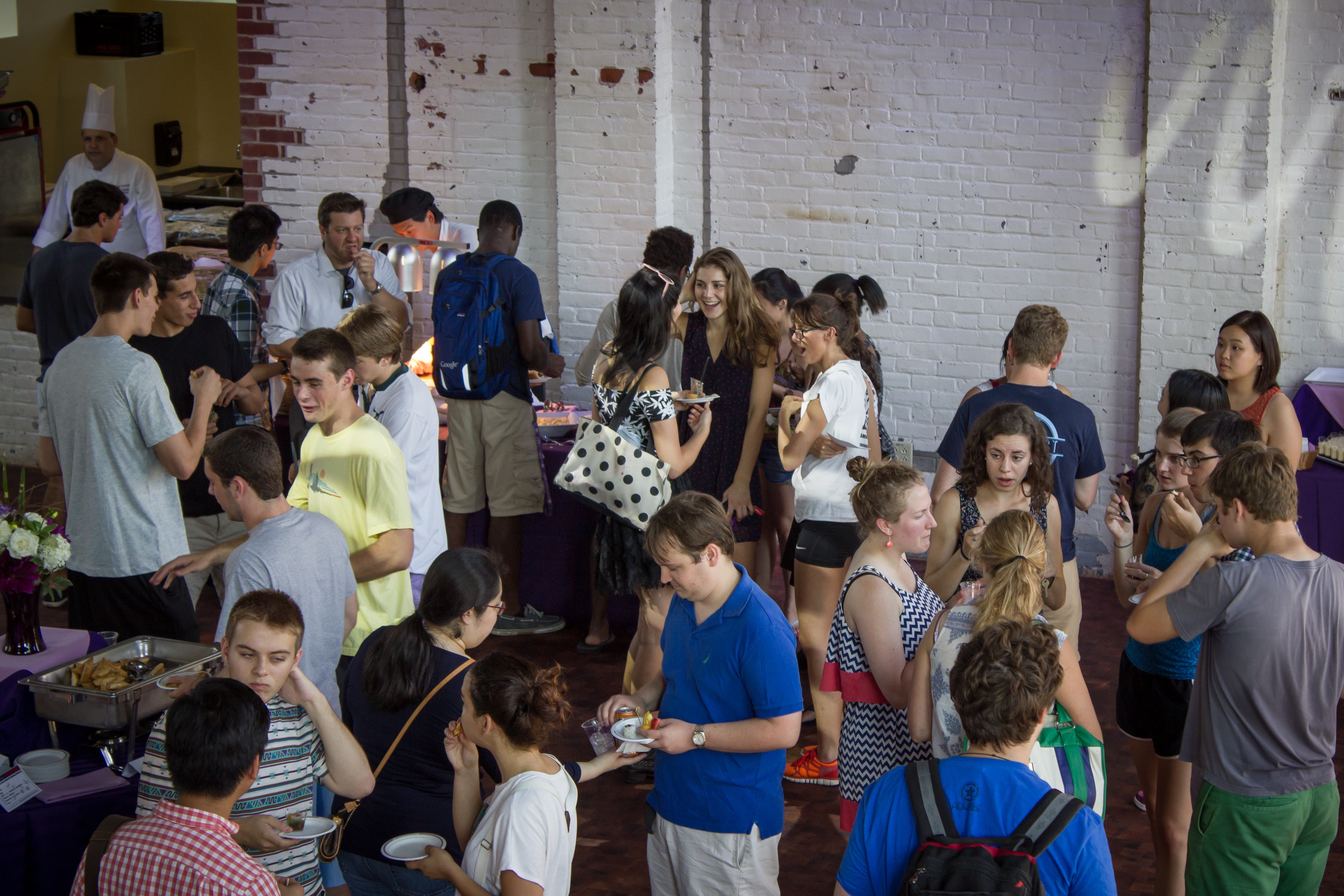

After introducing a new party policy as a pilot program last semester, the Office of Student Affairs says it plans to keep the new policy in place for the foreseeable future.
The party policy is designed to promote a safer and more respectful social environment on campus. The policy was created partly in response to last December’s Crossett Christmas event, which attracted approximately 2,000 people to the social quad. In response to the event, the administration initiated a policy in which student hosts of parties, called party sponsors, must reserve public spaces in advance, in order to prevent extreme overcrowding and potential danger.
“What’s hard about private parties is that they promote and encourage an environment that has really proven dangerous for our students,” said Dean of Student Alex Vasquez. “What we hope we can do with the party policy is encourage better behavior with students, encourage the right opportunities for students to drink responsibly, to not engage in the kind of behavior that doesn’t keep students safe.”
The party policy provides an alternative to the crowded suites of the social dorms and enables students to register parties in more open, public spaces. According to the policy, students must register a party if an event is being sponsored by college collected funds, uses a public space for dancing with loud music, or if it has attendees who are consuming alcoholic beverages. In addition, party sponsors must communicate with resident counselors for residential spaces or with an administrator for non-residence hall venues.
Furthermore, party sponsors must remain sober throughout the duration of the party and make a responsible effort to manage parties. Acting responsibly includes addressing unsafe intoxication and overcrowding, as well as requesting assistance from Amherst College Police or Amherst College Emergency Medical Services (ACEMS) for problems that develop outside of sponsors’ reasonable control.
“But, it doesn’t necessarily mean that the college is looking to use the party policy to end all fun at Amherst,” Vasquez said. “We want to use the party policy to encourage a social environment where students feel like they can have a great time, drink responsibly, and wake up the next morning in their room, safe, feeling like they had a great time.”
The recently-renovated Powerhouse provides another option for registering parties under the new policy. The Powerhouse held Beach Bash, the first Amherst TAP (The Amherst Party) this past weekend.
“The Powerhouse opens at a point at which if a student has started drinking at ‘X’ time in the evening and is going to drink until about two in the morning, the Powerhouse really interrupts that, and I think it interrupts that in a positive way because people have enjoyed it,” Vasquez said. “And if the Powerhouse becomes a venue where there is alcohol — and there’s no intention to say that it’s not — it’s not about asking the institution, ‘Can we have alcohol at the Powerhouse?’; it’s about partnering with the college to say, ‘If we have alcohol at the Powerhouse, how do we do it best?’”
Although the party policy has not changed since the past academic semester, it is not yet set in stone. In fact, last semester’s effort was a pilot program. Vasquez said that changes to the alcohol policy would likely come from partnerships with students.
“I think we will look at the policy in an interactive way and see semester by semester what parts of this are really working, what changes need to be made, and what we see as sort of positive impacts and negative impacts,” Vasquez said. “But if we were to propose changes to the party policy, we will absolutely be partnering with students to do that.”
The college’s police department has been collaborating with the Office of Student Affairs to continue promoting a safer social environment on campus this academic year.
“The primary goal of the police department remains the same, and that is to ensure that our residents and guests are in a reasonably safe environment,” said Police Chief John Carter.
Carter said that creating safe environments involves addressing “the overcrowding in buildings, the minimization of abuse or illegal use of alcohol, and actively taking care of each other by providing help when it’s needed.”
“The party policy is an excellent method for accomplishing this goal by positively impacting all of these things,” Carter said. “Smaller gatherings do not allow for anonymous bad behavior and they encourage bystander interventions.”
Carter noted that the number of noise complaints and unauthorized parties has increased slightly compared to last year. But he said said that since the academic year has only just begun, it is too soon to know whether the party policy has been successful.
“This early in the year, the statistical sampling would be so small that any fluctuation could be easily misread,” Carter said.